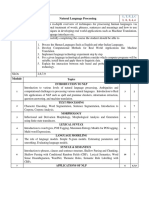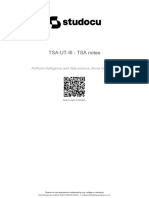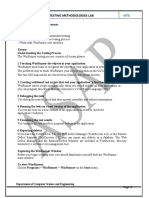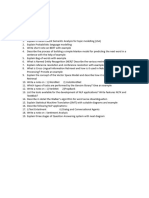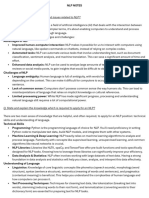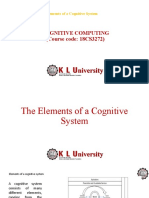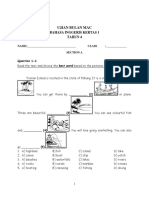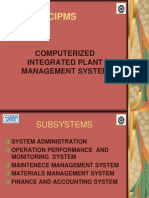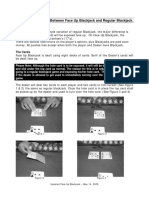0% found this document useful (0 votes)
412 views17 pagesPython NLP Tasks with NLTK
The document discusses various natural language processing tasks in Python including tokenization, stop word removal, stemming, part-of-speech tagging, morphological analysis, n-gram generation, and n-gram smoothing. Code examples with outputs are provided to demonstrate how to perform tokenization, stop word removal, stemming with PorterStemmer, word sense disambiguation with Lesk, part-of-speech tagging, morphological analysis with NLTK, n-gram generation with NLTK ngrams library, and n-gram smoothing.
Uploaded by
coding akCopyright
© © All Rights Reserved
We take content rights seriously. If you suspect this is your content, claim it here.
Available Formats
Download as DOCX, PDF, TXT or read online on Scribd
0% found this document useful (0 votes)
412 views17 pagesPython NLP Tasks with NLTK
The document discusses various natural language processing tasks in Python including tokenization, stop word removal, stemming, part-of-speech tagging, morphological analysis, n-gram generation, and n-gram smoothing. Code examples with outputs are provided to demonstrate how to perform tokenization, stop word removal, stemming with PorterStemmer, word sense disambiguation with Lesk, part-of-speech tagging, morphological analysis with NLTK, n-gram generation with NLTK ngrams library, and n-gram smoothing.
Uploaded by
coding akCopyright
© © All Rights Reserved
We take content rights seriously. If you suspect this is your content, claim it here.
Available Formats
Download as DOCX, PDF, TXT or read online on Scribd
/ 17














